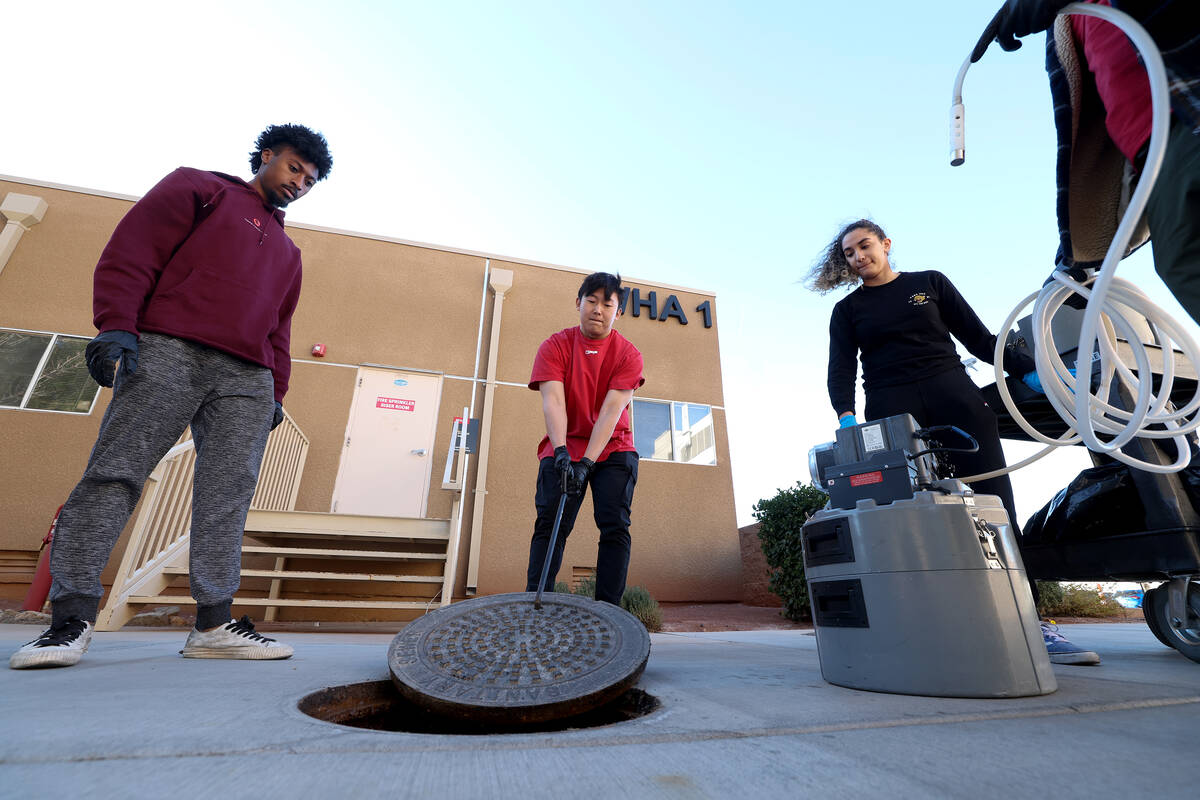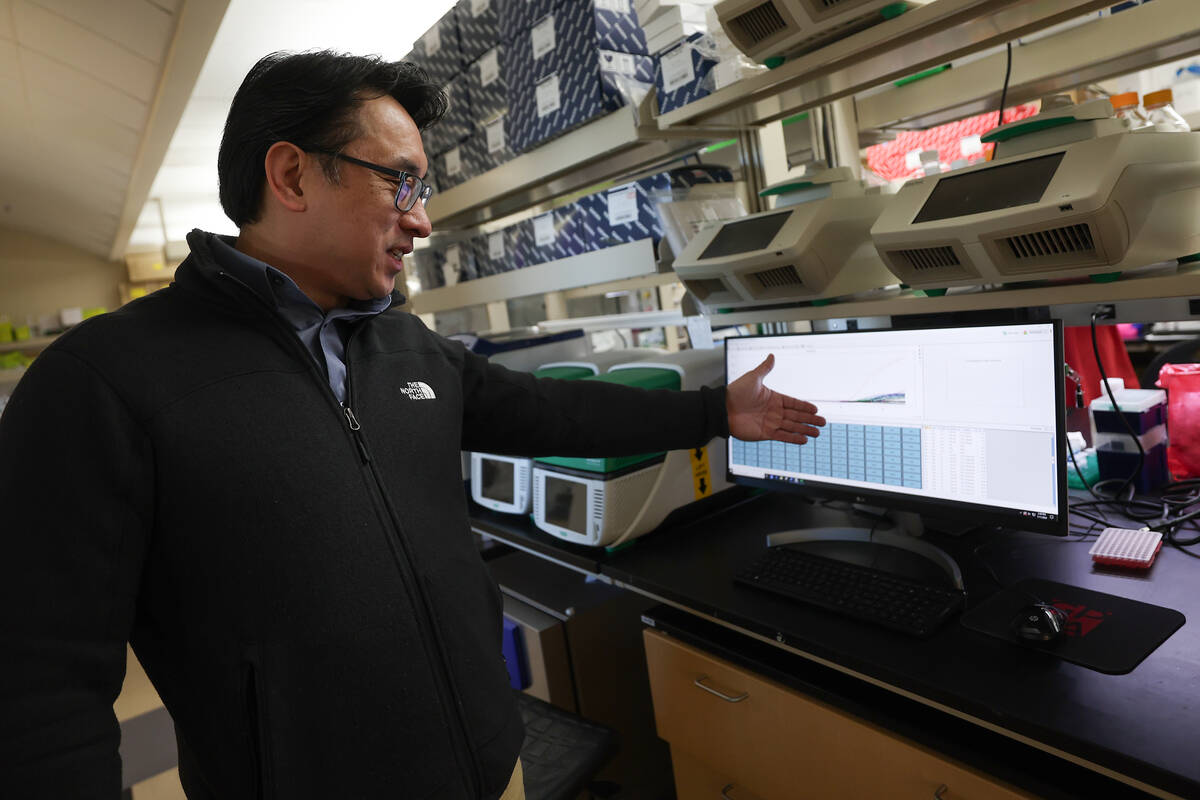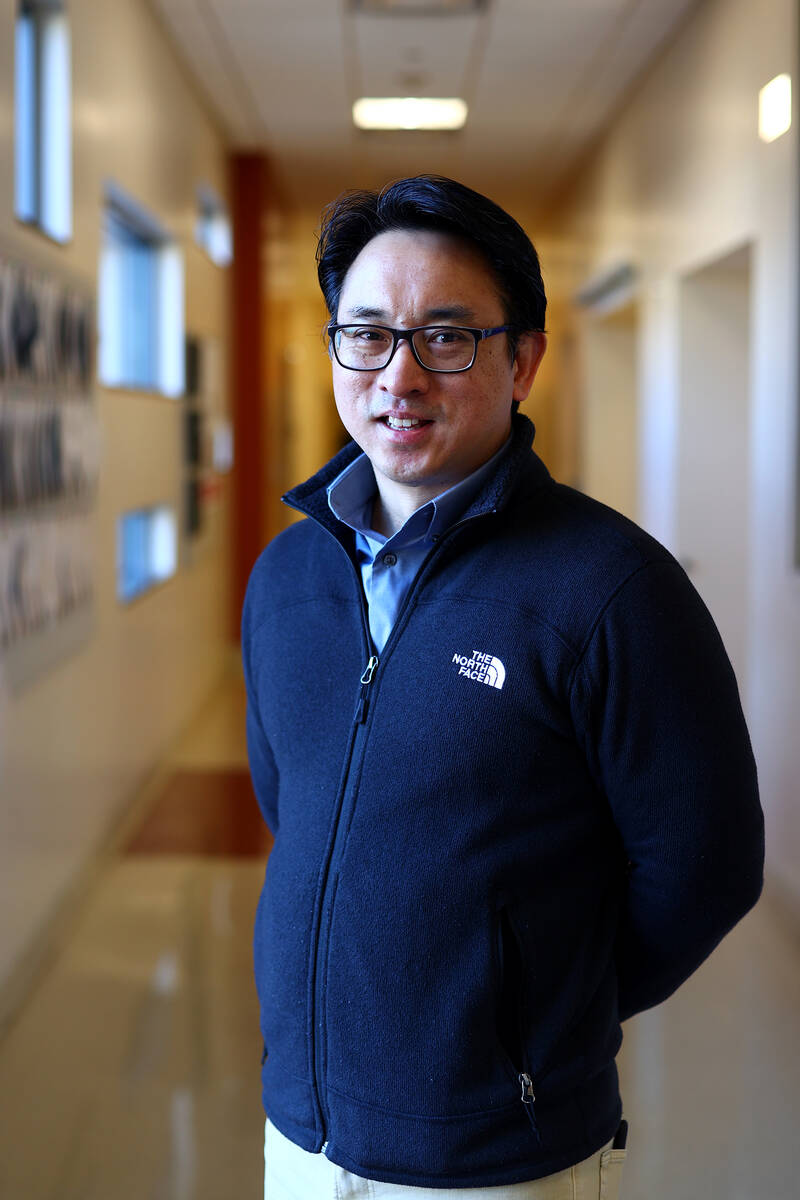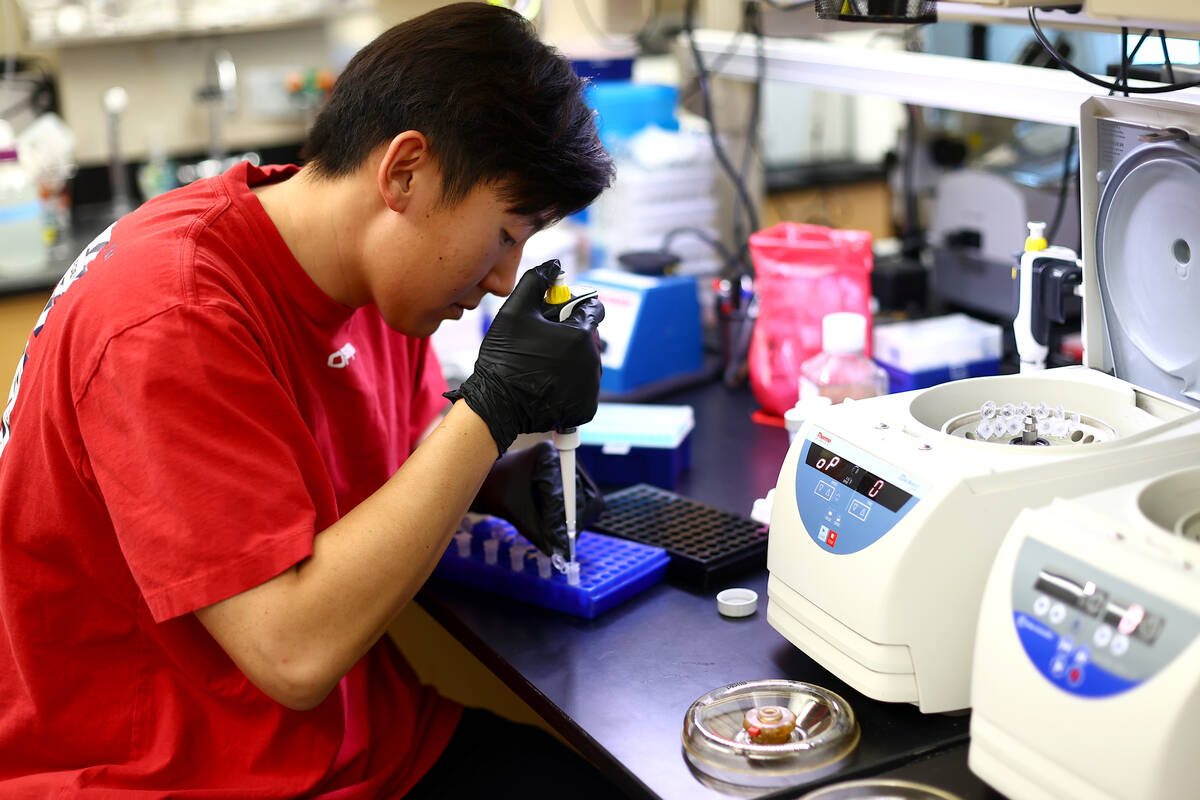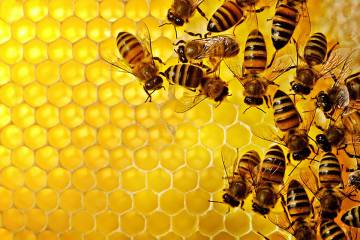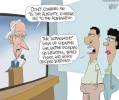Las Vegas scientists quietly optimistic about controlling COVID-19 in ’24
COVID-19’s latest variant is on the loose, but local experts think vaccines can mitigate its spread and severity.
Matthew Kappel, senior epidemiologist at the Southern Nevada Health District, said the JN.1 variant is the “dominant strain” currently found in local wastewater.
But COVID vaccinations, coupled with a person’s natural immunity, can reduce the spread and the severity of JN.1, Kappel explained.
According to Kappel, JN.1 is not “hiding very well” from the latest COVID-19 vaccine, which makes the new variant an easy target for effective prevention. Kappel also saw no evidence of JN.1 posing any “increased risk to public health compared to the other variants.”
Still, Kappel sees room for improvement on the vaccination front, noting that Clark County’s vaccination rate of 7 percent lags behind nationwide averages.
Hospitalizations rising
Kappel notes that while COVID-related hospitalizations are “gradually going up” in Clark County, hospitalizations still amount to fewer than 10 people per 100,000.
The Nevada Hospital Association agrees with Kappel’s assessment: Despite COVID hospitalizations trending upward, the trend is manageable and poses far less strain on hospital infrastructure than seen during the pandemic’s peak in 2020.
“While we appreciate that the number of hospitalized patients is rising, as previously recognized when other new variants were introduced to the state, the number of patients is not significant enough to stress the hospital infrastructure,” said Christopher Lake, the hospital association’s executive director.
“Currently, there are roughly 250 COVID-19 patients hospitalized. During the pandemic’s peak, hospitals treated more than 1,800 COVID-19 patients,” Lake said.
Wastewater tracking
To ensure public safety, scientists measure concentrations of viruses like COVID-19 — as well as influenza and RSV — in local wastewater, according to Kappel.
Edwin Oh, an associate professor at UNLV School of Medicine, analyzes local wastewater to determine which type of virus, and how much of it, is circulating through the community’s water supply at any given time.
A person infected with COVID-19 will “shed” the virus into local wastewater through their urine, feces or respiratory droplets, Oh explained. Wastewater samples collected from so-called “sentinel sites” can then be analyzed in a laboratory.
Because it does not depend on patients reporting their illnesses to health care facilities, direct wastewater analysis gives scientists an “unbiased average” of the virus levels in the water, Oh said, adding that JN.1 began “circulating in the community” in November 2023.
Kappel notes that COVID-19 is not solely to blame for the recent local rise in respiratory hospitalizations, pointing also to seasonal viruses such as flu and RSV.
He adds that large congregations of people, such as New Year’s Eve parties, can also spread viruses and create temporary “spikes” in the days and weeks that follow.
Overall, however, the medical community seems cautiously optimistic.
“With the tools we have in our toolbox, we shouldn’t see the spikes we saw in prior years,” Kappel said.
Oh agrees. While he expects a new variant of JN.1 to emerge within weeks, he said he sees “no evidence” that the COVID levels of 2020 will return.
Contact Peter S. Levitt at plevitt@reviewjournal.com.



